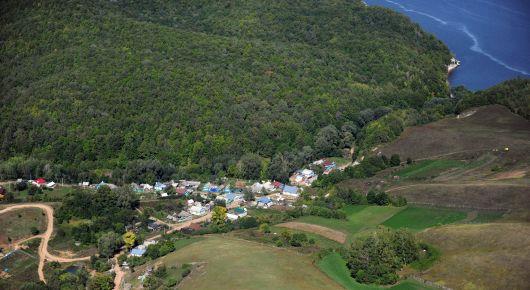Experts recommend an integrated approach to develop rural communities

In the countries of Europe and Central Asia, about half of the population lives in rural territories, with those people who produce the food we eat among them. Achieving the Sustainable Development Goals and addressing the impacts of the COVID-19 pandemic, as well as the impacts of the ongoing war in Ukraine on the Europe and Central Asia region, requires an increased attention to rural communities. Considering the complex nature of these issues, FAO has convened various actors in Budapest to discuss ideas for the development of rural communities in an integrated manner.
The regional workshop on 22–24 June promoted a more integrated and cross-sectoral approach to community development, aimed at addressing several problems in a coordinated and coherent way. In Europe and Central Asia, FAO has had more than 10 years of experience developing rural areas locally and in an integrated manner that are providing a baseline for these current discussions.
“Rural areas are a crucial part of every country’s economy, providing food, livelihoods, and employment for many. Yet, they face multi-dimensional challenges; current policies to local rural development in many countries fall short to provide integrated and sustainable solutions to these challenges. Thus, we see this workshop, as well as the study of good practices for integrated community development initiated by the Regional Office, as a step toward supporting and strengthening the capacities of the national and local stakeholders in FAO programme countries to incorporate integrated community development approaches and regional good practices into national policy frameworks,” said Morten Hartvigsen, FAO land tenure officer and coordinator of the Regional Initiative on empowering smallholders, family farms, and youth.
One of the main preconditions for keeping agriculture viable in rural areas is to support smallholders and family farmers. Therefore, the workshop will conclude with the Regional Dialogue on the United Nations Decade of Family Farming, which focuses on this aspect in a hybrid format to allow wider participation and contributions by all relevant partners. Specifically, participants will take stock of the National Action Plan processes in the region, and discuss emerging topics and the way forward.
Throughout the sessions, different community and local rural development policies, approaches, and projects were presented and discussed. The workshop attendees also highlighted the role of inclusiveness in transforming rural areas and the importance of leaving no one behind, as foreseen by the 2030 Agenda for Sustainable Development, through targeted support of rural youth, women, and other vulnerable groups. Digitalization and digital tools, as well as short value chains, were also highlighted as practical solutions for development of rural communities and smallholders.
In addition, the regional workshop facilitated mutual learning as many countries had the opportunity to present their experiences and thus provide ideas and transferable solutions to others.
“We don’t have any magic bullets; yet, occasions like this regional workshop can plant the seeds of ideas that can bring about the transformation of rural areas in the long term,” Hartvigsen added.
The workshop is the continuation of a process that started with the establishment of an informal regional technical network on community development in 2019, and is part of a wider effort by FAO to empower smallholders, family farms, and youth. The event also contributes to the overarching goals of the UN Decade of Family Farming 2019–2028.
24 June 2022, Budapest, Hungary
